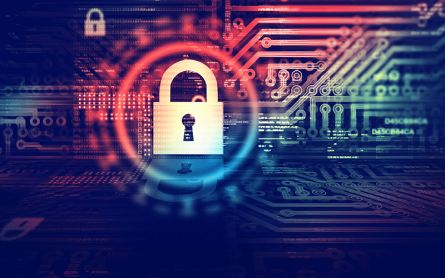
Planning & budgeting
Saving & investing
KiwiSaver
Tackling debt
Protecting wealth
Retirement
Home buying
Life events
Setting goals
Money tracking
Plan your spending with a budget
Getting advice
Studying
Get better with money
What pūtea beliefs do you have?
How to build up your emergency savings to cover unexpected costs
How to save your money
How to start investing
Find a financial adviser to help you invest
Your investment profile
Compound interest
Net worth
Types of investments
Term deposits
Bonds
Investment funds
Shares
Property investment
How KiwiSaver works and why it's worth joining
How to pick the right KiwiSaver fund
Make the most of KiwiSaver and grow your balance
How KiwiSaver can help you get into your first home
Applying for a KiwiSaver hardship withdrawal
How to use buy now pay later
What you really need to know before you use credit
How to get out of debt quickly
Credit reports
Know your rights
Pros and cons of debt consolidation
Credit cards
Car loans
Personal loans
Hire purchase
Student loans
Getting a fine
What happens if I start to struggle with moni?
How to protect yourself from fraud and being scammed
About insurance
Insurance types
Insuring ourselves
Wills
Enduring powers of attorney
Family trusts
Insuring our homes
Losing a partner
Redundancy
Serious diagnosis
How to cope with the aftermath of fraud
Separation
About NZ Super – how much is it?
When you’re thinking of living in a retirement village
How to plan, save and invest for retirement
Manage your money in retirement
Find housing options in retirement
Four approaches to spending in retirement
Planning & budgeting
Saving & investing
How to build up your emergency savings to cover unexpected costs
How to save your money
How to start investing
Find a financial adviser to help you invest
Your investment profile
Compound interest
Net worth
Types of investments
Term deposits
Bonds
Investment funds
Shares
Property investment
View all
KiwiSaver
Tackling debt
How to use buy now pay later
What you really need to know before you use credit
How to get out of debt quickly
Credit reports
Know your rights
Pros and cons of debt consolidation
Credit cards
Car loans
Personal loans
Hire purchase
Student loans
Getting a fine
What happens if I start to struggle with moni?
View all
Protecting wealth
Retirement
Home buying
17 July 2017
Reading time: 4 minutes
Posted by Tom Hartmann,
0 comments


At first, it seems like a good way to save money: instead of draining our mobile data plan, simply jump online using the public Wi-Fi at the café, airport, library or school. They’re all around, and incredibly convenient. No worries, right?
Unfortunately public Wi-Fi can be just the opposite – a way to lose money. Our personal details, files or even our entire identity are out in the open. It can be a free-for-all out there.
Even if we’re using an encrypted bank app on our phone, the fact that it has to go through public Wi-Fi to do our banking makes it insecure. It’s far too easy for a middleman to hop between us and our bank, sniff around and steal our information and our money.
Not only that, but since these days many things online are not what they seem, even the hotspot itself can be faked. So you might be signing on to a network that looks legit, but it’s rigged to go through someone else’s computer and suck down the details of what everyone is up to.
I caught up with Sean Lyons, director of outreach at Netsafe, walking through an airport, where looking around him, he saw a “cacophony” of Wi-Fi hotspots, mobile personal hotspots and laptops. Were some fake?
“It’s not hard to do that,” he explained. “It’s not something that people do a lot of, but it’s absolutely possible. We need to be on our guard and connect to Wi-Fi points that we absolutely trust.”
Of course, how we are using the internet is also a factor. “Vacuous tweets are one thing, sensitive data is another,” he said, and recommended encrypted connections and virtual private networks (VPNs). “What you’re sending out is effectively gobbledygook to anyone trying to snoop in.”
There are places, he explained, where the internet connection is so wide open that you should avoid it. “Hotel lobbies are the worst places,” he said. And while there are measures you can take, “nothing’s foolproof”.
The short of it is, anything money related – banking or shopping – should never be done over a public Wi-Fi network. There’s just no telling who else is on there, and whether they’re logging everything we’re doing while we’re on.
Best bet is to go directly through your mobile provider over their secure network. Back to the data plan, it seems.
If you or anyone you know (your teens, for instance) find that you still need to use public Wi-Fi, here are some top tips:
These days, as long as I’m not out of data, I log on through my mobile network. “Tethering” like this gives me some peace of mind that I can trust the network I’m on.
But that’s not always possible, so it’s good to know how to stay safe in the wild world of public Wi-Fi, where we should never let our details, or our money, out in the open.
Use verification code from your authenticator app. How to use authenticator apps.
Code is invalid. Please try again
Don't have an account? Sign up
Or log in with our social media platforms


A free account gives you your very own space where you can save your tools and track your progress as you get ahead.
Or sign up using Google:



Comments (0)
Comments
No one has commented on this page yet.
RSS feed for comments on this page | RSS feed for all comments